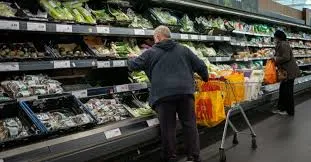
Easing Inflation Eases Pressure: A Breakthrough for UK Government
The United Kingdom’s annual inflation rate unexpectedly declined to 2.5% in December 2024, down from 2.6% in November, according to the Office for National Statistics (ONS). This marks the first decrease in three months, providing some relief to the Labour government amid recent economic challenges.
The ONS attributed the decline primarily to reduced price pressures in the services sector, notably falling hotel prices and a slower increase in tobacco costs. However, these were partially offset by rising fuel and second-hand car prices.
In response to the inflation data, UK government bond yields fell, and the British pound remained stable against the dollar and euro. Investors now see an increased likelihood of the Bank of England cutting interest rates by 25 basis points at its next meeting in February, with the probability rising from around 60% to 80%.
Despite this positive development, inflation remains above the Bank of England’s 2% target. Analysts caution that underlying price pressures could persist, with expectations of inflation rising above 3% in early 2025 due to factors such as potential increases in the minimum wage and higher energy and food costs.
Chancellor of the Exchequer Rachel Reeves acknowledged the need for the government to “go further and faster” in its efforts to stimulate economic growth and address market volatility. The recent dip in inflation offers some respite, but challenges remain in achieving economic stability and meeting fiscal targets.
Leave a Reply